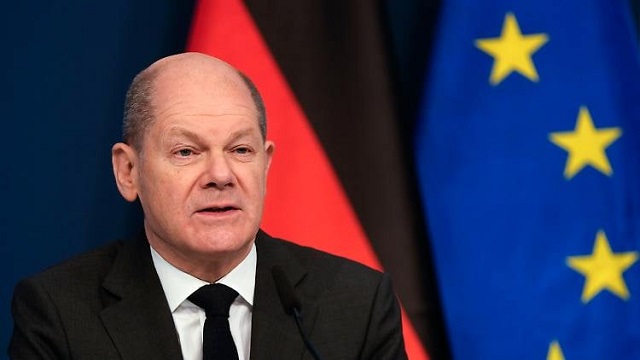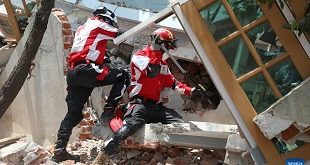
Berlin, Germany | Xinhua | Although Germany was criticized by its partners in the North Atlantic Treaty Organization (NATO) for its “late” export approval of Leopard tanks to Ukraine, the country is right not to blindly rush into more and more weapon deliveries and plays a key role in calming its western allies.
German Chancellor Olaf Scholz warned against a “public competition to outdo each other along the lines of battle tanks, submarines, aircraft…” NATO must not become a party in the Russia-Ukraine conflict, he said ahead of a special meeting of the European Union (EU).
Amid this balancing act, the office of the German defense minister is considered the “hot seat” among ministerial posts. With his predecessor failing to finish the legislative term, the current Minister of Defense, Boris Pistorius, just took office last month.
REQUESTS FOR ARMS
Germany’s new defense minister was appointed at a critical time when pressure from NATO partners to supply battle tanks to Ukraine was mounting. Only days after Pistorius took office, the government finally gave its green light for the tanks.
What once began with 5,000 helmets, Germany is now pledging to deliver 14 modern Leopard 2 tanks and gave permission to its allies, most notably Poland, to re-export Leopard tanks from their own stocks. The export of up to 178 of the older Leopard 1 tanks was also approved.
In view of the highly explosive political nature, it was Chancellor Scholz who announced the step. “This decision follows on from our official line to support Ukraine to the best of our ability,” said Scholz.
The United States followed suit, pledging 31 Abrams tanks. The West has thus crossed an invisible line that had long been avoided.
The West’s military aid, Russia warned, would spark “unpredictable” escalation, dragging NATO members into the conflict. “The United States and its allies are trying to prolong the conflict as much as possible,” Russian Minister of Defense Sergei Shoigu said recently in a conference call with military officials.
Ukraine meanwhile is demanding more weapons and is asking for fighter jets as well. On Wednesday, Ukraine’s President Volodymyr Zelensky reiterated this in London during his second foreign visit since the beginning of the conflict.
Germany has so far opposed the delivery of fighter jets. Due to their greater range and firepower, “we would be venturing into dimensions that I would currently warn against,” Pistorius said in an interview with Sueddeutsche Zeitung in late January.
EMPTY STOCKS
Germany’s ability to supply other nations with weapons is extremely limited due to the country’s own undersupply. “The shelves are almost empty,” the Inspector General of the country’s army found when taking stock last year.
Germany is far from meeting NATO’s defense target of 2 percent of gross domestic product (GDP) per year, as promised by Scholz when presenting the special defense fund. According to the latest NATO estimates, the country’s defense spending was only around 1.4 percent of GDP in 2022.
According to recent official remarks, it was unlikely that the country will meet the 2 percent target before 2025.
Parliamentary Commissioner for the Armed Forces, Eva Hoegl, criticized the “unacceptable” lack of action to fully equip the German military at the end of last year. Almost 20 billion euros (21.4 billion U.S. dollars) would be required to stock up on ammunition alone.
Germany’s current stockpile would not even last for a week in the event of a military conflict, she warned.
AVOIDING ESCALATION
Germany’s internal struggles aside, Europe’s largest economy has not entirely given up on the idea of a diplomatic solution to the Russia-Ukraine conflict.
Although most important decisions such as the delivery of tanks are well coordinated among western partners, the tone is different. While French President Emmanuel Macron is vowing to help Ukraine to “victory”, Scholz is careful not to close all doors on Russia.
Ukrainians would be supported for “as long as it is necessary,” he said during the special EU meeting in Brussels on Friday. (1 euro = 1.07 U.S. dollar)
 The Independent Uganda: You get the Truth we Pay the Price
The Independent Uganda: You get the Truth we Pay the Price



